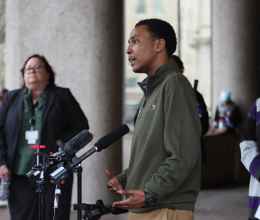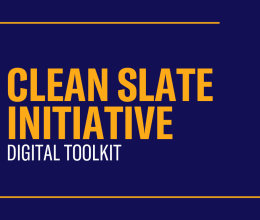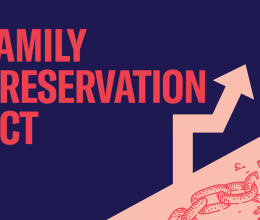
The following letter was written by Community Stakeholders to End Deaths at LMDC, a coalition of organizations working to save lives in Louisville Metro Department of Corrections (LMDC). Some elements have been updated since it was first published.
The Louisville Metro Department of Corrections is in crisis. As of this writing, 12 people have died in the care of their government in just 10 months. This shouldn’t just be newsworthy – it should shake us to our core.
All 12 of the people who have died in LMDC custody over the past year were being held for pre-trial detention – people who hadn’t yet been convicted of a crime – and the majority of their deaths are the result of drug overdose or suicide. LMDC also reports three times as many deaths as nearby jails.
When the criminal legal system makes the decision to incarcerate someone, that system becomes responsible for that person’s care. According to KRS statute 441, the county is responsible for providing a “safe, secure, and clean” environment for all persons in jails or prisons of that county. That safety and security includes ensuring medical well-being for all people who are held there, including those in pre-trial detention. It is clear that LMDC is failing to do that, and there is no evidence to support the idea that investing our state’s already limited resources in new jails, more jails, or higher salaries for corrections officers would improve conditions in penal facilities or prevent more deaths of people incarcerated there.
Investing in mass incarceration is historically classist and racist. We must build a system that treats people who are incarcerated as worthy of rehabilitation. We need a system that addresses the problem at its root, rather than relying on incarceration.
There are viable steps to build that system and ultimately prevent more deaths at LMDC. In 2021, 40% of prisoners being held for class D felonies in Kentucky jails were there for drug crimes. Substance use disorder is neither a crime nor a personal failing. Kentucky has a history of criminalizing mental illness and substance use disorder. Our family, friends, and neighbors–regardless of race, gender, financial status or other mitigating factors–deserve treatment options and compassion, not incarceration.
Instead of giving more money to jails or corrections employees, Louisville Metro Government can–and should–invest in harm reduction and free access to substance use treatment programs to help those suffering from addiction before they become entangled in the criminal legal system. In addition, decriminalizing drug use and possession can prevent many police interactions and arrests; something Louisville has a historic problem with in ignored and impacted communities.
Other community solutions proven to decrease incarceration include affordable housing, equitable paying jobs, community-based mental health services, and education.
For example, funding from the American Rescue Plan, a federal program to support citizens during the pandemic, has seen portions of its funding allocated to carceral punishment. The primary function of this fund is purposed for funding community-based programs that meet people's needs and supports community stability.
When we create services and infrastructures that are de-coupled from policing and imprisonment we develop systems with the potential to engage with people’s complex needs in consistent and trust-building ways. We know, realistically, that people will continue to commit crime. But we are demanding that all people be given the dignity that they deserve, including when incarcerated.
A band aid won’t fix a broken limb, and increasing funding for the carceral system will only exacerbate a lack of trust between the state and BIPOC communities. The solution cannot be to give more money to an institution that has already repeatedly failed to protect people in its care.
Community Stakeholders for Change at LMDC is a group of partner organizations and individuals pooling together resources and power in response to the recent rise in deaths at Lousiville Metro Department of Corrections. The coalition includes the following:
American Civil Liberties Union of Kentucky
Kentucky Commission on Human Rights
Louisville Urban League
The 490 Project
Family of Stephanie Dunbar
Better Dayz
Bend the Arc: Jewish Action Louisville
Feed Louisville
Louisville Family Justice Advocates
Louisville Community Bail Fund
Black Lives Matter Louisville
Louisville Showing Up for Racial Justice (LSURJ)
The Bail Project – Louisville
The Kentucky Alliance Against Racist and Political Repression
The Sowers of Justice Network
Louisville Family Justice Advocates
Kentucky Equal Justice Center
National Council of Jewish Women – Louisville Section
Jewish Community Relations Council



